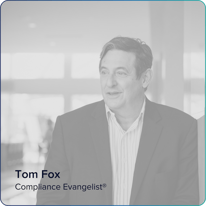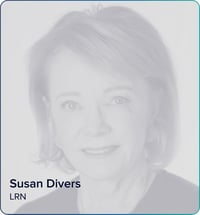What you’ll learn on this podcast episode
As the world emerges from a pandemic mindset, we confront new geopolitical realities with Putin’s war in Ukraine and increasingly fraught relations between the US and China. How is this geopolitical landscape changing the compliance landscape? In this episode of the Principled Podcast, host Susan Divers is joined by Tom Fox, the founder of the Compliance Podcast Network and aptly accredited “Voice of Compliance.” Listen in as the two discuss the impact of geopolitics on ethics and compliance and what issues should be top-of-mind for E&C leaders in the near future.
To learn more, download a copy of Tom Fox’s white paper Never the Same: Five Key Areas in Which Business Will Never Be the Same After the Russian Invasion.
Guest: Tom Fox

Tom Fox is literally the guy who wrote the book on compliance with the international compliance best-seller The Compliance Handbook, 3rd edition, which LexisNexis released in May 2022. Tom has authored 23 other books on business leadership, compliance, ethics, and corporate governance, including the international best-sellers Lessons Learned on Compliance and Ethics and Best Practices Under the FCPA and Bribery Act, as well as his award-winning series “Fox on Compliance.”
Tom leads the social media discussion on compliance with his award-winning blog and is the Voice of Compliance, having founded the Compliance Podcast Network and hosting or producing multiple award-winning podcasts. He is an executive leader at the C-Suite Network, the world’s most trusted network of C-Suite leaders. He can be reached at tfox@tfoxlaw.com.
Host: Susan Divers

Susan Divers is the director of thought leadership and best practices with LRN Corporation. She brings 30+ years of accomplishments and experience in the ethics and compliance arena to LRN clients and colleagues. This expertise includes building state-of-the-art compliance programs infused with values, designing user-friendly means of engaging and informing employees, fostering an embedded culture of compliance, and sharing substantial subject matter expertise in anti-corruption, export controls, sanctions, and other key areas of compliance.
Prior to joining LRN, Mrs. Divers served as AECOM’s Assistant General for Global Ethics & Compliance and Chief Ethics & Compliance Officer. Under her leadership, AECOM’s ethics and compliance program garnered six external awards in recognition of its effectiveness and Mrs. Divers’ thought leadership in the ethics field. In 2011, Mrs. Divers received the AECOM CEO Award of Excellence, recognizing her work advancing the company’s ethics and compliance program.
Before joining AECOM, she worked at SAIC and Lockheed Martin in the international compliance area. Before that, she partnered with the DC office of Sonnenschein, Nath & Rosenthal. She also spent four years in London and is qualified as a Solicitor to the High Court of England and Wales, practicing in the international arena with Theodore Goddard & Co. and Herbert Smith & Co law firms. She also served as an attorney in the Office of the Legal Advisor at the Department of State. She was a member of the U.S. delegation to the UN, working on the first anti-corruption multilateral treaty initiative.
Mrs. Divers is a member of the DC Bar and a graduate of Trinity College, Washington D.C., and of the National Law Center of George Washington University. In 2011, 2012, 2013, and 2014 Ethisphere Magazine listed her as one of the “Attorneys Who Matter” in the ethics & compliance area. She is a member of the Advisory Boards of the Rutgers University Center for Ethical Behavior and served as a member of the Board of Directors for the Institute for Practical Training from 2005-2008. She resides in Northern Virginia and is a frequent speaker, writer, and commentator on ethics and compliance topics.



